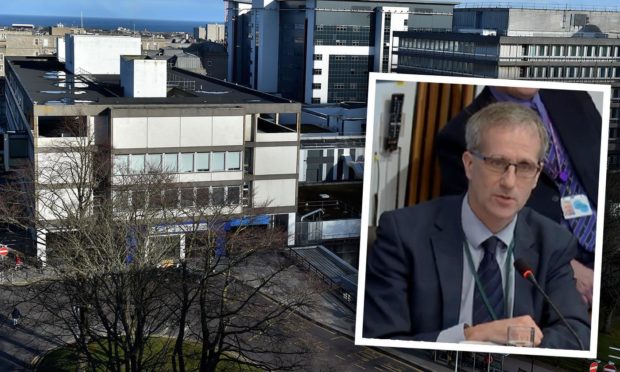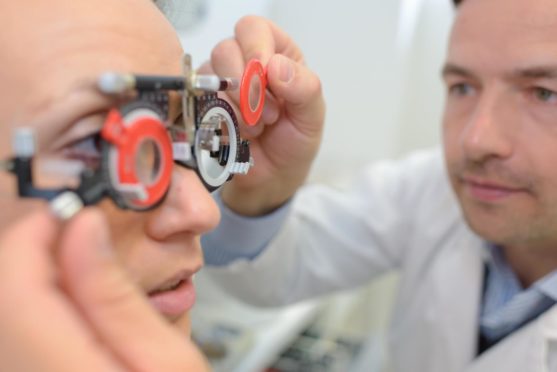Eye operations were suspended at a city hospital after dust from an old ventilation system caused infections in patients.
NHS Grampian launched an investigation after rising numbers of patients developed potentially “life-changing” infections – which could have led to loss of vision – following ophthalmic procedures at Aberdeen Royal Infirmary.
An incident management team set up to investigate the issue discovered the “ageing” ventilation system at the Eye Out Patient Department (EOPD) needed replaced.
All invasive eye procedures were immediately suspended in the department and temporarily moved to short stay theatres in the hospital.
There are now only three days each week for eye procedures compared to the five-day service previously available.
NHS Grampian is now working on a plan to install a new ventilation system so full services can resume again.
‘Infections in the eye can be life-changing often resulting in loss of vision’
Dust can cause problems for patients undergoing procedures as well as staff.
The key issue noted by the incident management team set up to investigate in June last year was that it could either be inhaled by medics or patients, or could contaminate surgical procedures.
An NHS Grampian report said: “Intra-operative infections in the eye can be life-changing often resulting in loss of vision in the affected eye.”
The report – compiled by the health board’s director of finance Alan Gray – highlights that all eye injections and cataract operations have since been moved to the short stay theatres.
The impact of the move on patients
Mr Gray notes in his report that the temporary move has had an impact on patients, particularly those requiring regular care.
He said: “Patients requiring injections need to attend on a monthly basis and the process requires an initial review by a nurse or consultant, then a scan, then travel to theatre and back again for review.
“The short stay theatre is located down two floors and a lengthy walk along the main corridor from the rest of the EOPD service. Visually impaired patients are therefore required to walk or be assisted to travel between locations twice in the same day.”
Specialist teams working in the department carry out around 15,000 eye injections and 3,000 cataract operations every year.
There’s also fears the growing waiting list for cataract surgery in the theatre could impact on waiting times for other specialties in the ENT/General Surgery and Gynaecology departments.
What will happen next?
The issue has now been discussed at a health board meeting where it emerged a feasibility study had been carried out to consider options to improve the ventilation system.
It was concluded the only option was to replace five air handling units in the system and that most of the units were past their normal expected lifecycle and 50 years old.
NHS Grampian has now given the go-ahead for contractors to come up with designs which will be discussed by the health board in December.
At the meeting, Derick Murray, a non-executive board member, asked: “In doing this work are we going to interfere with the services currently being carried out at the eye department, will they still be able to carry on?”
Mr Gray said: “At this stage I cannot confirm that. It is likely there would be some impact but we would seek to try to minimise that if possible.”
He added that community hospitals could potentially be used for services to help minimise any disruption.
NHS Grampian has been contacted for comment.


